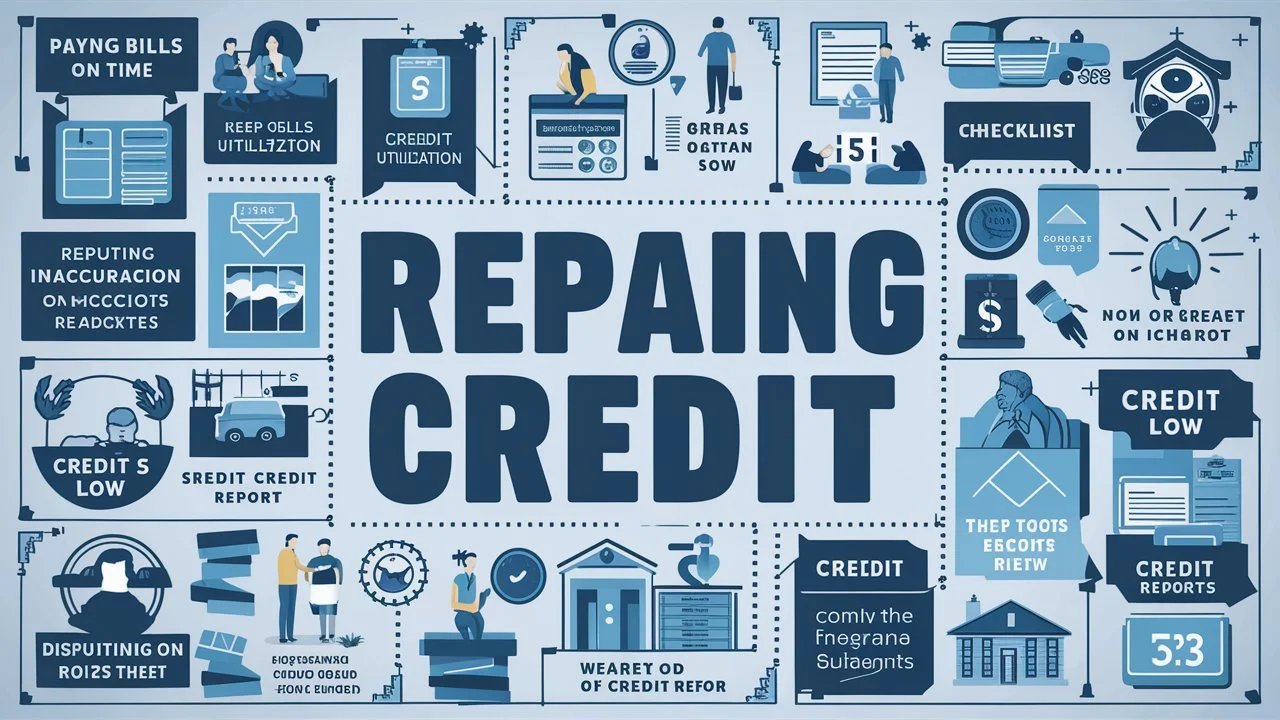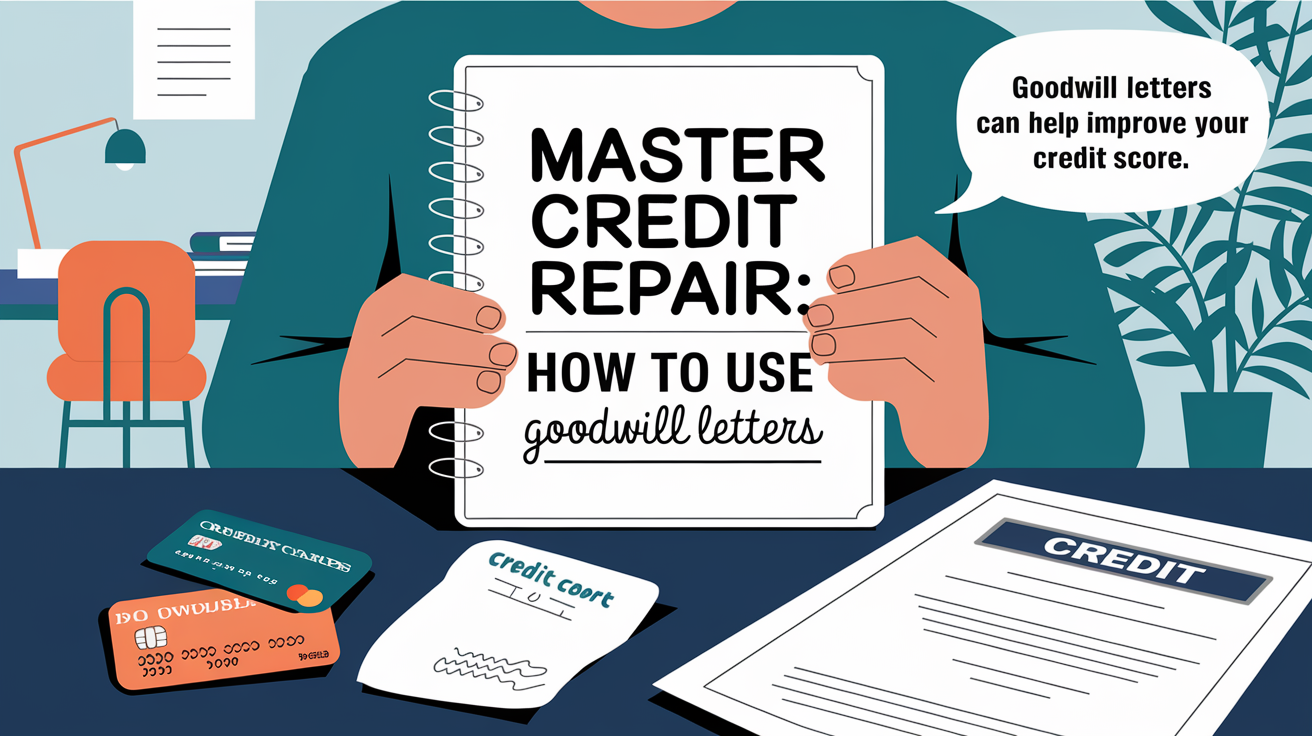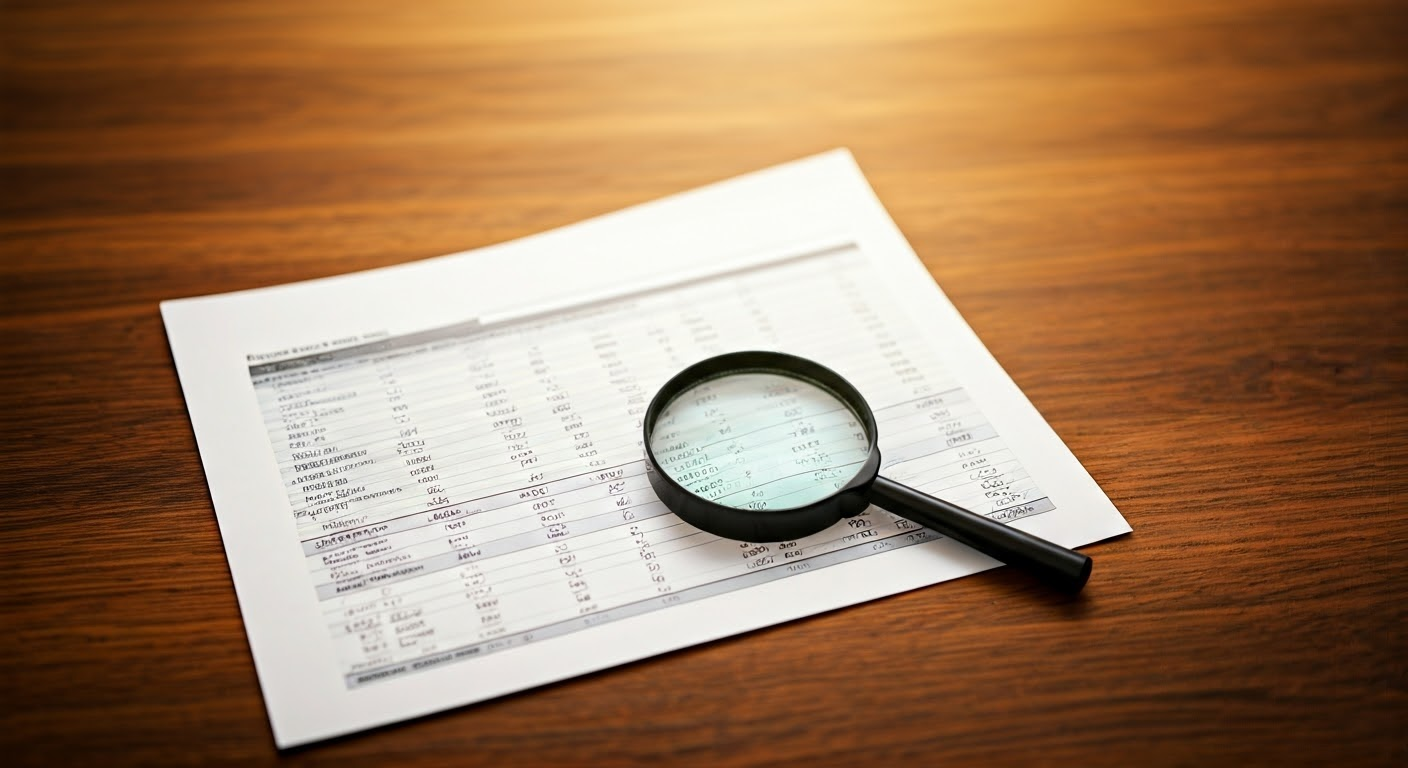How Repair Your Credit?

Credit repair involves fixing the errors in your credit report and improving your credit score.
Good credit is useful when it comes to approval for loans, credit cards, mortgages, and rentals, among other things. Bad credit has a way of manifesting itself in almost every facet of your financial realm. Thankfully, there is hope, and you can regain the lost ground and even boost your credit score through the following ways. Here is a list of ten things you can do to repair your credit.
Check Your Credit Reports The first one is to obtain credit reports from the three major credit bureaus, namely Equifax, Experian, and TransUnion. Read the reports carefully and challenge any facts that seem to be wrong or unproven. Some of the errors include wrong account details, account status, and balance due, among others. Rectifying these mistakes makes a positive difference in the credit score.
Pay Down Balances It is also important to note that having high credit utilization affects your credit score. It is advised that your balances should remain below 30 percent of your total credit limit on each of the cards and loans you have. Make timely and, ideally, ahead-of-schedule payments to decrease the ratios displaying that you can handle credit responsibly. This can lead to credit score improvements over time, as lower balances are reflected on the bureaus.
It is important to pay any outstanding bills and settle any accounts that may have been left unpaid. All the accounts that are thirty-one days or more past due get reported to the credit bureaus and cause significant harm to the credit. Pay off any account balances to ensure all accounts are current. Ensure that one pays at least the minimum amount due monthly to all the accounts to prevent new bad payment records from being reported. When you establish a positive record, your scores should improve as well.
Pay Off Collection Accounts To put it simply, unpaid collections sink your credit. I would like to settle all the collection accounts in full, even though the credit card company may have written them off as bad debts. Creditors can remove accounts from your credit reports in return for payment, and you should obtain written settlement agreements from the creditors. The removal of paid collections can be particularly advantageous in increasing credit scores significantly.
Settle Charge-Offs Even if they are written off by the lenders as bad debts, they continue to reflect on your credit report if unpaid. Discharge of charge off accounts for less than the balance due, while getting all the accounts deleted in writing. Similar to collection accounts, settling charge-offs for less than owed and getting deletions can translate to good credit score improvements.
Consolidate Your Debt Applying for a new credit account also decreases credit scores for a while. However, consolidating with strategic use of a new loan to clear several charges that attract high interest can indeed increase one's scores due to lower outstanding balances. Look for the best interest rate on a debt consolidation loan and terms that enable you to pay off around three or fewer accounts with a new loan and a smaller monthly payment.
Become an Authorized User Request family members or friends who have long credit histories and good credit scores to include you on their credit card accounts as an authorized user. These positive payment histories get reported on your credit files and can be very advantageous for low credit scores, especially for individuals with no credit or limited credit. It is recommended to pay all your bills on time, especially if you are the primary account holder, so that this new activity does not reflect poorly on your credit.
Limit New Credit Applications Every new credit application initiates a hard inquiry, which can subsequently reduce scores by as much as 5 to 15 points for each inquiry. Restrict the initial application in an attempt to avoid too many scoring hits. Otherwise, search for preapprovals and rate quotes with soft credit checks that do not affect credit scores. Do not formally apply for credit if you have not been pre-approved and are sure that you will be approved at the terms you consider acceptable.
Rebuild Credit with Secured Cards People with poor credit cannot get new unsecured credit. Otherwise, you need to apply for new secured cards that demand refundable security deposits for credit limits. Using credit cards to make charges in small amounts every month and to pay the balances in full will show that you are a responsible credit user, which will gradually improve your scores. After anywhere from one year to 1 ½ years of steady payments, ask for graduation to unsecured cards and get deposit refunds.
Fix Credit Report Errors A recent survey observed that approximately 70% of credit reports have mistakes or unverified entries that decrease scores. The study reports from each bureau as carefully as possible. Provide the credit bureaus with the required dispute letters along with the documents substantiating the errors found. This may further be done by a bureau that is required by federal law to investigate within 30 days. Ensure all the mistakes are fixed to avoid their continuous negative impacts on your creditworthiness.
Overcoming bad credit status and improving credit standing is possible if one is persistent enough. Take the following ten steps to rectify your credit reports, upgrade payment histories, lower credit owed, and prove credit responsibility. In approximately six months, one can significantly improve one's credit score to be approved for new credit at better interest rates. Check your progress monthly with a free credit report and FICO score from each bureau.
Ready to boost your credit score? Call +1 888-804-0104 now for the best credit repair services near you! Our expert team is here to help you achieve financial freedom and improve your credit. Don't wait—get started today!



